Trade and geopolitics to counterbalance Russia – Belarus Foreign Policy Digest

Vladimir Makei and Jean Asselborn in Minsk. Photo: Twitter @MFA_Lu
With the summer holiday period finally over, Belarusian diplomacy has gone into overdrive.
In September – October, Belarusian officials spoke with representatives of over thirty nations, ranging from deputy foreign ministers to heads of state. Poland has transformed from being Belarus's staunchest critic to its main advocate in Europe.
The search for new export and investment opportunities has been the central element of most of these meetings. Geographically, Belarusian officials favoured Europe, Asia, the Middle East and former Soviet countries outside the Eurasian Economic Union – for the most part Russia's adversaries.
President Alexander Lukashenka was personally involved in diplomatic efforts. He travelled to China, Pakistan, Uzbekistan, Qatar, and the UAE, where he bragged about strategic partnerships and imminent breakthroughs. Europe, on the other hand, has so far remained off-limits for the Belarusian leader.
Europe: a high-intensity relationship
Over the past two months, Europe has remained Belarus’s preferred foreign policy partner for dialogue.
Foreign minister Vladimir Makei travelled to Warsaw on 10 October to further strengthen the rapidly-developing ties with Poland. Two weeks later, Poland’s Deputy Prime Minister Mateusz Morawiecki co-chaired a meeting of a joint commission for economic cooperation in Minsk.
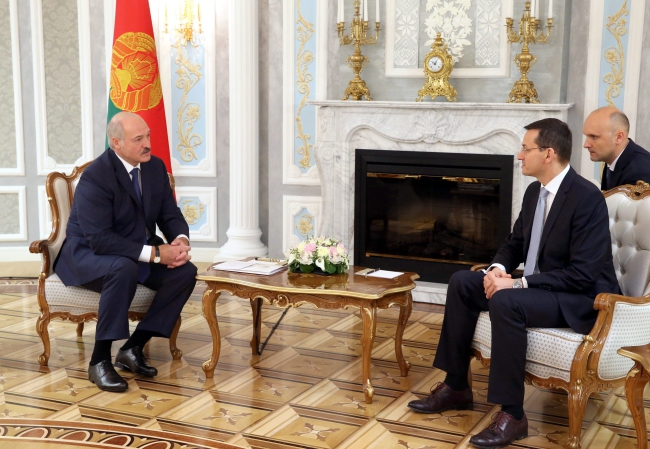 During his encounter with Alexander Lukashenka, Morawiecki emphasised the prospects for cooperation in joint ventures, banking, and preservation of cultural heritage. Poland has become Belarus’s third largest trading partner (after Russia and Ukraine). Minsk seeks to almost double turnover within the next two years and reach $4bn.
During his encounter with Alexander Lukashenka, Morawiecki emphasised the prospects for cooperation in joint ventures, banking, and preservation of cultural heritage. Poland has become Belarus’s third largest trading partner (after Russia and Ukraine). Minsk seeks to almost double turnover within the next two years and reach $4bn.
Luxembourg's foreign minister Jean Asselborn has become the first foreign minister from Old Europe to visit Minsk since May 2015. On 14 September, he and Makei focused on Belarus’s relationship with the EU. The bilateral trade between the two countries remains modest ($6.7m in 2015); prospects for dramatic improvement are bleak.
In the last two months, Belarus’s deputy foreign minister Alena Kupchyna travelled to Sarajevo, Belgrade, and Bratislava to hold political consultations with her Bosnian, Serbian, and Slovak counterparts. She also received her Latvian and German compeers in Minsk.
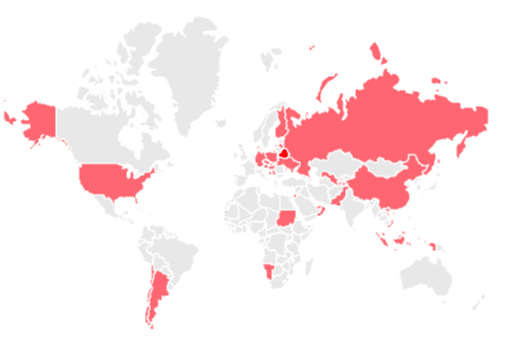
Kupchyna’s trip to Copenhagen on 26 October warrants particular attention. This marked the first such meeting between Belarus and Denmark in six years. The Nordic countries have traditionally taken a tougher stance towards the Belarusian regime.
The foreign ministry also facilitated trade-promotion events in the form of business forums or days of economy in Riga, Vienna, Hamburg, and Brno as well as the Belarusian city of Homiel (which hosted Finnish business executives). Belarusian and German officials met in Minsk for a bilateral working group on trade and investment.
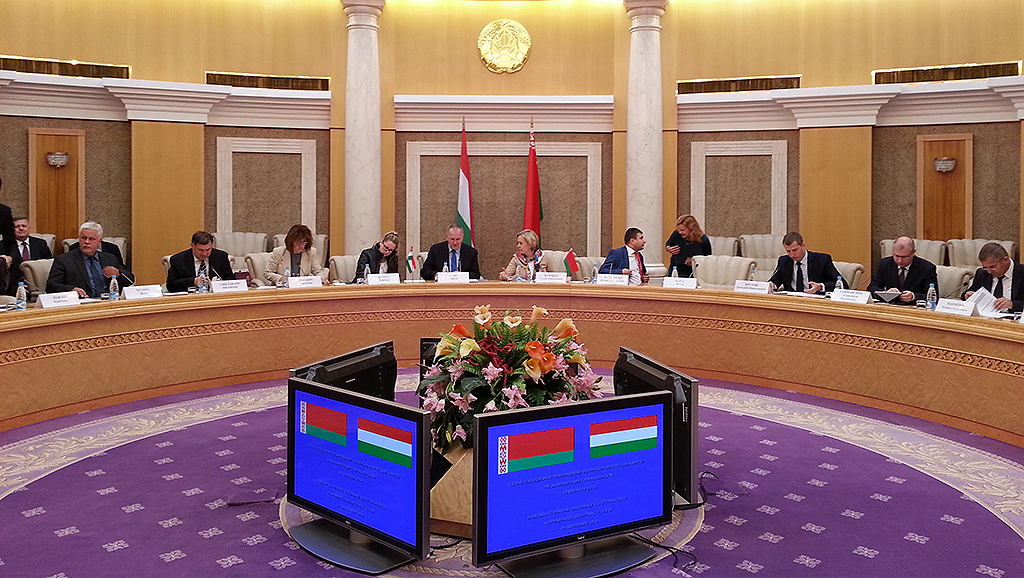 Belarus and Hungary have been trying to reverse the negative trend in bilateral trade by holding another meeting of the intergovernmental committee on economic cooperation in Minsk on 29 September. This time, the parties emphasised cooperation in financing and investment insurance. Hungary closely follows Poland in terms of intensity of bilateral contacts with Belarus.
Belarus and Hungary have been trying to reverse the negative trend in bilateral trade by holding another meeting of the intergovernmental committee on economic cooperation in Minsk on 29 September. This time, the parties emphasised cooperation in financing and investment insurance. Hungary closely follows Poland in terms of intensity of bilateral contacts with Belarus.
Belarus also launched a multilateral trade dialogue with the EU. On 13 October, a delegation of the European Commission visited Minsk for the first round of talks. Speaking to the press after the event, first deputy foreign minister Andrei Yeudachenka expressed hope that these talks might eventually result in the conclusion of a trade agreement between Belarus and the EU.
The United States: an optimistic status quo
On 18 October, the United States announced that it would prolong temporary sanctions relief for nine Belarusian companies for six more months after 31 October. This came as no surprise in light of current trends in bilateral relations.
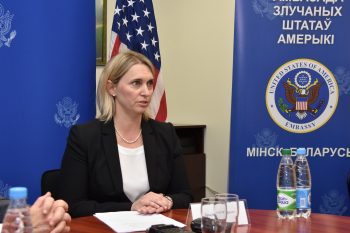 Minsk continued close dialogue with Washington in various domains, including sensitive security and defence matters. The Belarusian authorities have also avoided a return to politically repressive policies, thus providing no reason for a resumption of sanctions. However, the scale and pace of reforms have failed to warrant their full withdrawal.
Minsk continued close dialogue with Washington in various domains, including sensitive security and defence matters. The Belarusian authorities have also avoided a return to politically repressive policies, thus providing no reason for a resumption of sanctions. However, the scale and pace of reforms have failed to warrant their full withdrawal.
US Deputy Assistant Secretary of State Bridget Brink, who visited Minsk on the same day, emphasised the particular importance of electoral reform in Belarus before further normalisation of bilateral relations can take place.
The new US administration is unlikely to examine relations with Belarus more closely before mid-2017, barring any drastic changes in Belarus’s foreign and domestic policy or in the security situation in the region.
The “Distant Arc” and Post-Soviet countries: trade and geopolitics
President Lukashenka’s state visit to China on 28–30 September resulted in the signing of twenty-six agreements in various fields. Relations between Belarus and China went from a simple “strategic partnership” to a “comprehensive strategic partnership featuring mutual trust and win-win cooperation”.
Officials and state media in both countries praised the visit profusely. However, the public is getting used to every highest-level bilateral encounter being labelled a “breakthrough”.
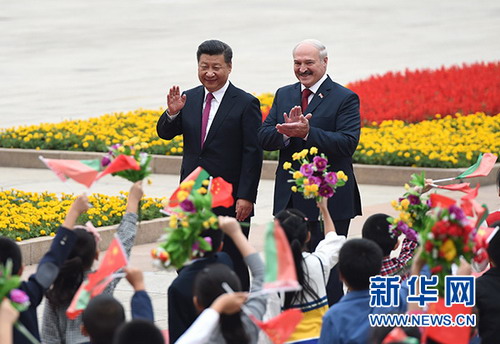 Belarus’s exports to China in January – August 2016 dropped to $189.6m, 32% of the same period in 2015 and 1.2% of total exports. China’s inefficient tied loans significantly overshadowed direct investment. The Belarus – China “Great Stone” industrial park has failed to attract the attention of Chinese manufacturers.
Belarus’s exports to China in January – August 2016 dropped to $189.6m, 32% of the same period in 2015 and 1.2% of total exports. China’s inefficient tied loans significantly overshadowed direct investment. The Belarus – China “Great Stone” industrial park has failed to attract the attention of Chinese manufacturers.
These facts will hardly discourage Minsk. Geopolitics have been an equally, if not more important factor in Belarus’s ties with China. Belarus needs China to counterbalance Russia’s influence. “If there is a strong and powerful China, there will be a sovereign and independent Belarus”, Lukashenka said in Beijing.
On a visit to Pakistan on 4–6 October, Lukashenka witnessed the signing of 14 new agreements between the two countries. Belarus and Pakistan have already signed more than 50 bilateral documents over the last 16 months.
However, the trade turnover is stuck at around $50m. Given economic realities, the much-touted goal of reaching $1bn turnover in the next four years looks like a pipe dream. No similar targets in Belarus’s relations with other countries have been reached so far.
Belarus’s trade relations with the UAE provides evidence supporting this assertion. Exactly two years ago, on a trip to Abu Dhabi, Lukashenka set a target of $500m turnover with the Emirates in 2015. The result: $29.7m in 2015 and $18.7m in January – August 2016.
The Belarusian president never gives up. On the last weekend of October he again went to Abu Dhabi with a stopover in Doha (Qatar). Trade with Qatar has been almost non-existent over the last few years.
Earlier in October, deputy foreign minister Valentin Rybakov toured Southeast Asia and the Middle East to hold political consultations and meet business executives in the capitals of Indonesia, Malaysia, Jordan, and Sudan. His colleague Evgeny Shestakov received delegations from Argentina and Chile in Minsk to discuss political and trade relations respectively.
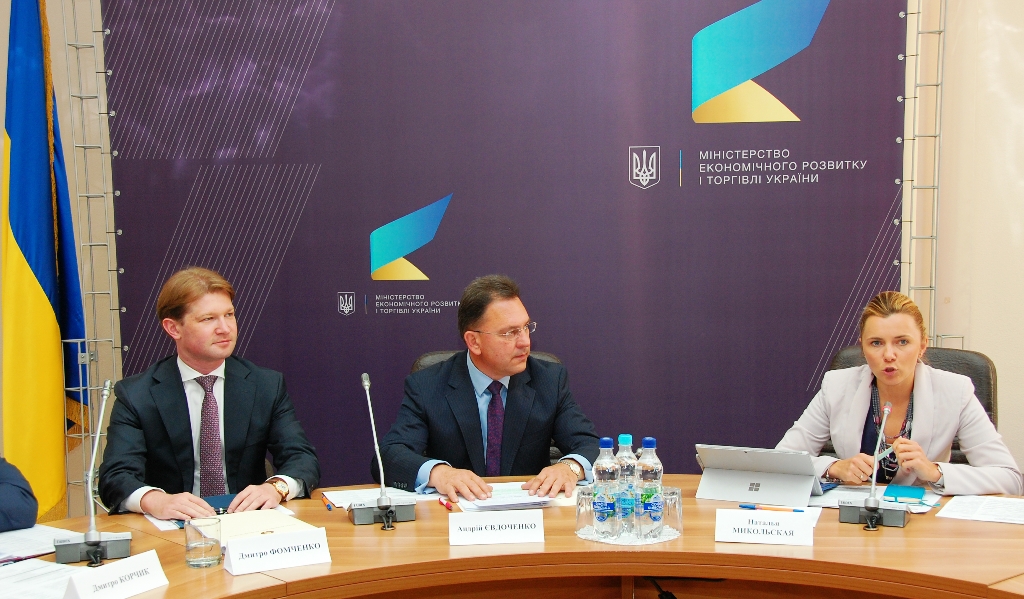
On 24 October, Vladimir Makei welcomed Namibia’s Deputy Prime Minister Netumbo Nandi-Ndaitwah in Minsk. The Belarusian government took advantage of this first high-level meeting between the two countries to promote its agricultural and mining machinery and radiation control tools.
Meanwhile, Belarus’s Deputy Prime Minister Vladimir Semashko discussed trade relations with Vietnam in Hanoi through an intergovernmental commission.
In the post-Soviet space, Belarus has been focusing on developing trade with the EU associated partners: Ukraine and Moldova. A meeting of a Belarus – Ukraine working group on trade in Kyiv on 2 September helped to abolish the special duty of 39.2% on a wide range of Belarusian exports to Ukraine.
In Chisinau, Belarus’s Prime Minister Andrei Kobyakov sought to expand the range of Belarusian machinery assembled in Moldova.
The geography of Belarusian diplomatic efforts demonstrates the determination of the country’s leadership to decrease its dependence from Russia, both economically and geopolitically. Most of Belarus’s negotiation partners over the last two months have been Russia’s rivals on a global or regional level.




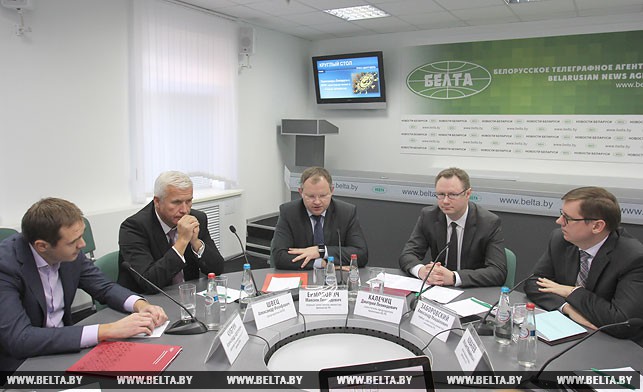 Situation in the field of national security and defense of Belarus. September 2016
Situation in the field of national security and defense of Belarus. September 2016